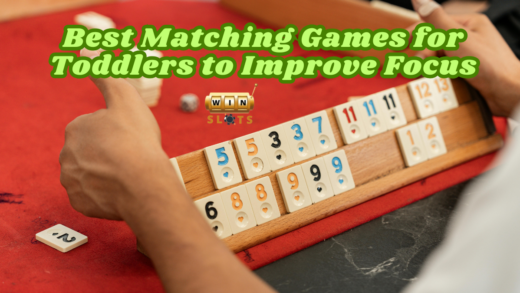Kids are naturally curious, and with the right tools, learning can be transformed into an exciting adventure. The best quiz games for kids strike a perfect balance between education and entertainment, making knowledge retention enjoyable and effective.
Whether your child is at home, in the classroom, or on the go, interactive quiz games can help strengthen their critical thinking skills while keeping them engaged.
In this article, we’ll explore fun, age-appropriate quiz games—ranging from digital apps to offline classics—that support different learning styles and subjects.
Why Quiz Games Are Effective for Children
Quiz-based learning is more than just answering questions. It stimulates memory recall, promotes cognitive development, and builds confidence. Studies in child development show that interactive learning tools like trivia and Q&A games improve academic performance, especially when combined with repetition and play-based methods.
When kids answer questions correctly, it reinforces their knowledge. When they get it wrong, they’re presented with the opportunity to learn and improve—without the pressure of formal testing environments.
1. Kahoot! – Game-Based Classroom Learning
Kahoot! is widely used in schools and homes for its vibrant and fast-paced format. Children answer multiple-choice questions on a range of topics like science, history, math, and even pop culture.
Why it works:
- Real-time competition adds excitement
- Custom quizzes offer personalization
- Encourages group participation or solo play
2. Quizlet – Flashcard and Quiz Learning
Quizlet allows kids to study with flashcards and participate in quiz-style games like “Match” and “Gravity.” It’s especially effective for vocabulary building, language learning, and test prep.
Great for:
- Elementary to middle school students
- Visual learners
- Repetition-based retention
3. BrainPOP Quizzes
BrainPOP offers animated educational videos paired with interactive quizzes. It covers a wide array of school subjects, and the fun visuals help younger learners stay focused.
Features:
- Topic-specific question sets
- Clear explanations after each answer
- Ideal for at-home learning
4. National Geographic Kids Quizzes
For kids who love animals, space, and science, the trivia section on National Geographic Kids is a treasure trove. These quizzes turn fascinating facts into bite-sized fun.
Best for:
- Nature and science enthusiasts
- Elementary schoolers
- Fun fact sharing with peers
5. Quizizz – Learn with Laughter
Quizizz combines humor with education. The platform is similar to Kahoot! but with added gamification elements like memes, leaderboard animations, and customizable avatars.
Why kids love it:
- Playable at their own pace or in live games
- Great for both classroom and solo play
- Encourages friendly competition
6. Offline Trivia Card Games
Don’t underestimate classic trivia games like Brain Quest or Professor Noggin’s card decks. These games are screen-free and offer a tactile learning experience that’s perfect for travel or family game nights.
Benefits:
- Encourages face-to-face interaction
- Builds general knowledge across grade levels
- Easy to carry and reuse
7. Question-and-Answer Learning Apps
Apps like Prodigy, ABCmouse, and SplashLearn integrate quizzes into game-like platforms. These apps use storytelling, rewards, and interactive questions to keep young users engaged while reinforcing math, reading, and logic skills.
Why they’re effective:
- Adaptive difficulty based on age
- Gamified learning encourages persistence
- Parental tracking available in most apps
Recommendation
Best Dinosaur Games for Kids That Combine Fun and Learning
Games That Teach Kids How to Tell Time
Unblocked Games The Advanced Method
Blooket Join: A Fun and Engaging Educational Game Platform
Blooket Play Guide: https//www.blooket.com code
FAQs
Q1: What age group are quiz games best suited for?
A1: Quiz games can be tailored for all ages, but many are specifically designed for kids ages 5–12. Platforms like Kahoot! and Quizizz even offer content for older students.
Q2: Are digital quiz games better than physical ones?
A2: Both types have value. Digital apps offer interactivity and convenience, while physical games encourage social skills and screen-free play. Mixing both is ideal.
Q3: How often should kids play quiz games?
A3: A few sessions a week are beneficial. Consistency improves memory and learning, but variety is key to preventing burnout.
Q4: Do quiz games support school curriculum?
A4: Yes. Many educational quiz platforms align with Common Core and other educational standards, reinforcing what kids learn in class.
Final Thoughts
From fast-paced trivia battles to peaceful solo learning sessions, the best quiz games for kids cater to different learning styles and preferences. These games don’t just test knowledge—they spark curiosity, build confidence, and make education feel like play.
Whether you’re looking to supplement your child’s schooling or introduce educational playtime at home, incorporating trivia games and question-answer learning apps is a smart and enjoyable strategy. By turning learning into a game, you’re giving your child a head start—without it feeling like work.



